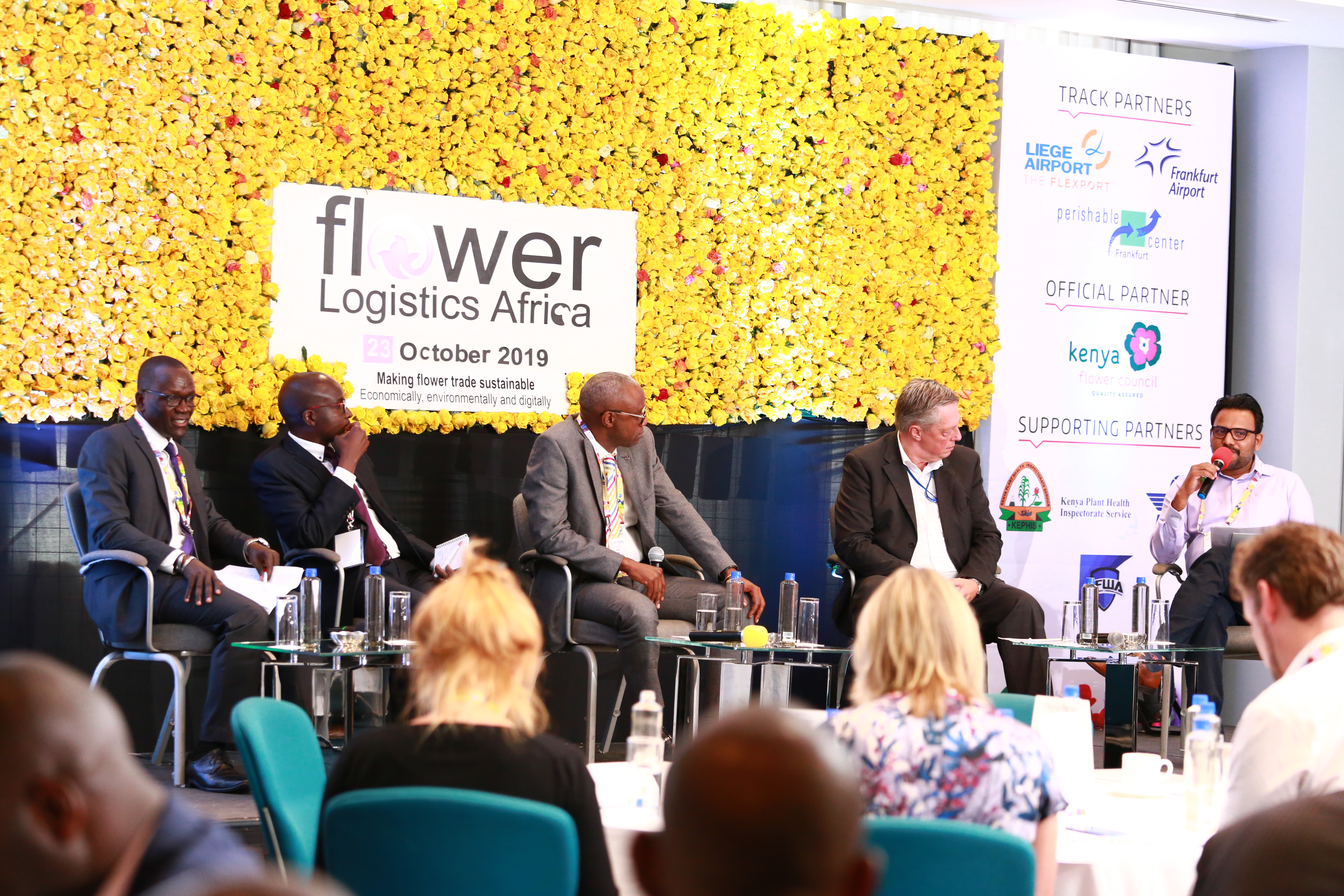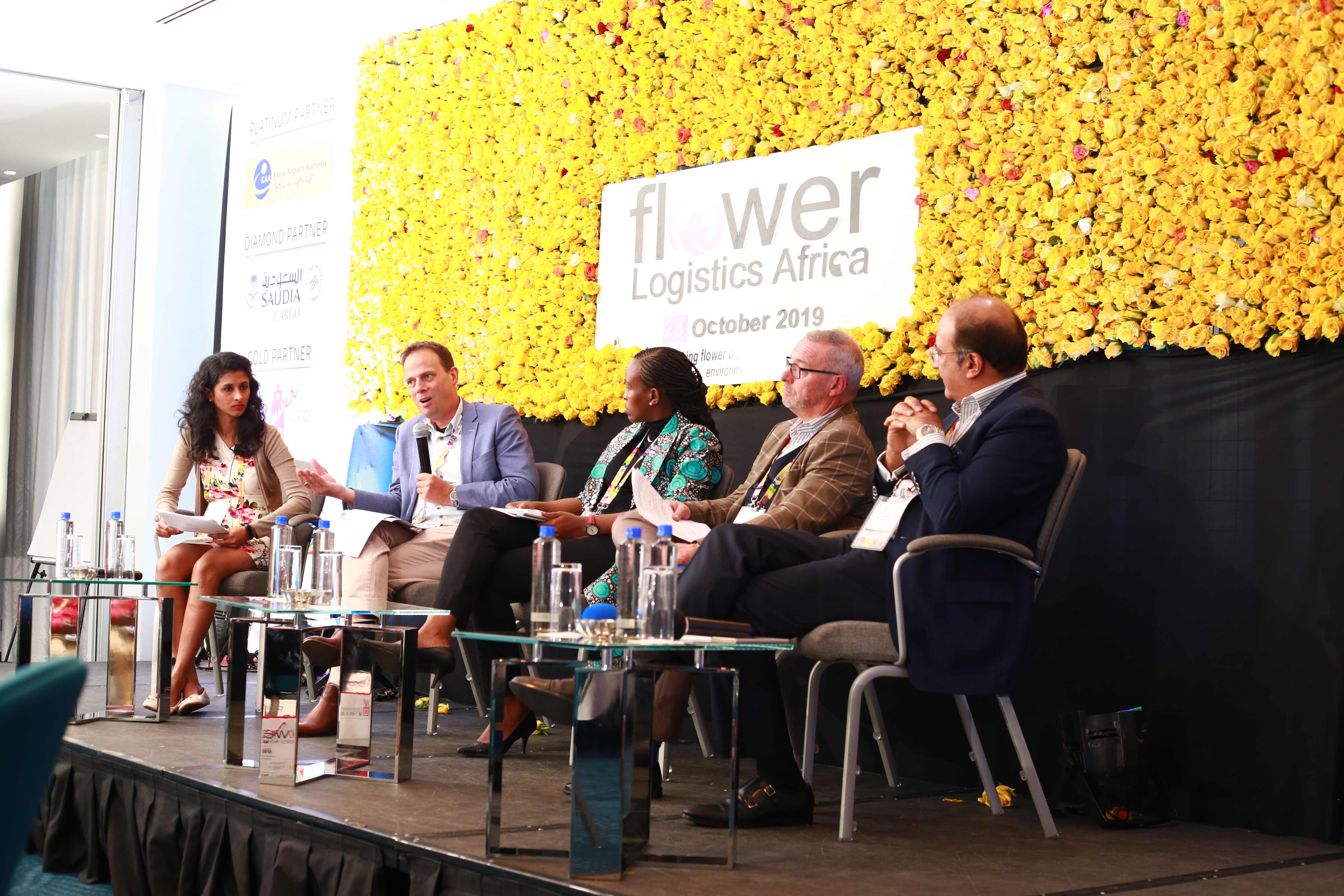
FLA 2019: Digital transformation key to visibility in the flower industry
Oct 24, 2019: The fourth edition of Flower Logistics Africa had a full house representing a cross-section of the entire value chain of flower trade. Revolving around the core theme of “Making Flower Trade Sustainable: Economically, Environmentally and Digitally”, the event was held at the Radisson Blu Hotel in Nairobi and attracted participation from Africa […]

Oct 24, 2019: The fourth edition of Flower Logistics Africa had a full house representing a cross-section of the entire value chain of flower trade. Revolving around the core theme of “Making Flower Trade Sustainable: Economically, Environmentally and Digitally”, the event was held at the Radisson Blu Hotel in Nairobi and attracted participation from Africa and outside.
The participants of the day-long conference deliberated on the typical challenges and changes faced in the floriculture industry as a whole, which is the fastest growing sub-sector among Kenyan exports, with annual growth of more than 7 percent. The discussions delved into flower trade sustainable practices in the changing economy, Kenya’s preparedness for big exports & new markets, and packaging innovations in flower transport.

Panel discussion on ‘Impact of the implementation of AfCFTA
on African flower trade and how air cargo helps to discover new trade lanes for
African flowers’
In July 2019, African leaders from 54 countries signed the African Continental Free Trade Agreement (AfCFTA), the world’s largest free trade area by number of countries. While speaking on the impact of the implementation of AfCFTA on African flower trade, Clement Tulezi, the CEO of Kenya Flower Council, mentioned that for a long time, Kenya has over-relied on the European market. “I believe that we can diversify into other markets and become competitive even if we have other people who are present in those markets. We believe in the quality of our produce, and with better promotion and entry into those markets, we are able to make headways,” he said.
While addressing the closure of some flower farms in the country in the past few weeks, Clement observed that the cost of doing business in Kenya is very high; interest rates, freight costs, taxes, availability of water, etc. “We have to be aware of these complexities and realities that are part of our business now, and be able to press the right buttons so that we have the right responses from the national government, central government, and all the players in between.”
 Panel discussion on 'From growers to customers: visibility through digital transformation'
Panel discussion on 'From growers to customers: visibility through digital transformation'
While discussing digital transformations and how data can improve transport and logistics for Africa, Jacob Bwana, the Cargo Commercial Manager at Kenya Airports Authority implored the different stakeholders present to digitalise the processes along the value chain. “This is what enhances data sharing and visibility of the processes, and this is what creates reliability and gives value proposition for the air freight business,” he added.
At the moment, some of the challenges that Kenya Airport Authority and the air freight industry at large are facing include the lack of quality infrastructure, lack of open skies in the continent, and transportation of good across boarders for final deliveries.
The event which was organised by Logistics Update Africa (LUA), was sponsored by, Kenya Airways Cargo, Holland Flower Alliance, Saudia Cargo and many more. The conference was also supported by industry associations such as Kenya Flower Council (KFC), Kenya Plant Health Inspectorate Service (KEPHIS), Kenya International Freight and Warehousing Association (KIFWA), and The International Air Transport Association (IATA).

